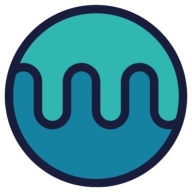

SonarQube Server and Mend.io compete in the area of code quality and security management. SonarQube Server holds an advantage in language support and technical debt management, whereas Mend.io excels in security and license management.
Features: SonarQube Server provides extensive language support, customizable coding rules, and integration with CI/CD pipelines. Mend.io focuses on security and open-source license management, offering vulnerabilities and license reports.
Room for Improvement: SonarQube Server could improve security scanning and ease of configuration for complex projects. Mend.io needs to expand language and package manager support and enhance user policy flexibility.
Ease of Deployment and Customer Service: SonarQube Server supports flexible deployment across on-premises, private, and hybrid cloud environments, with support from community forums but limited free user support. Mend.io is strong in cloud deployment with improvement opportunities in support interactions.
Pricing and ROI: SonarQube Server offers a free edition scaling to higher prices with advanced features, while being cost-effective for language support. Mend.io is competitively priced in SCA and container offerings, delivering strong ROI in vulnerability management.
Mend.io has provided a good return on investment by significantly reducing vulnerabilities.
I have seen a return on the investment from SonarQube Server (formerly SonarQube) because the value it adds relates to static code analysis and vulnerability assessments needed for our FDA approval process.
We see productivity increasing based on the fact that the code review is mostly automated, allowing the developer to fix the code themselves before assigning it to someone else to review, thus receiving that ROI.
It's more about maintaining standards and being able to prevent issues before they occur.
They prioritize providing the best experience to large organizations like ours, belonging to the Fortune 100.
The community support is quite effective.
I would rate the technical support for SonarQube Server (formerly SonarQube) as a 10 because we have not faced any specific issues that required us to contact tech support, which is a very rare case.
They showed us where we can actually get those granular level reporting extracted for Excel, which was a quick guide.
I find SonarQube Server (formerly SonarQube) very scalable because we're able to create a new repository and integrate all the tools on that project and it just works.
I would rate the scalability of SonarQube Server as a 10 because we can configure the server to scan multiple projects based on the number of lines.
AI integration in code security tools like Mend.io is still in its early stages and relatively immature.
I think SonarQube Server (formerly SonarQube) is stable, and we did not face any problems unless there was a power outage or if the LAN cable was plugged out.
The actual challenge is how easy it is to integrate it in the early phase of the software development life cycle.
The organization decided to consolidate tools and chose Snyk since it provides multiple functionalities in one solution.
If I fix some vulnerabilities today, they reappear in the next scan, and there will be completely different issues that need to be fixed.
Instead of grouping, I would prefer to scan the code as part of development and then generate a report on a daily basis among different units or projects, which is currently complicated.
As soon as I see that they've got a new feature that integrates AI that is not as generative as other GenAI platforms that actually generate the code and help developers develop faster, I believe that capability is lacking.
The cost of Mend.io is competitive, being quite low compared to others.
They always offer around a two-year contract, but we always take a one-year contract because it's expensive.
I would rate the pricing for SonarQube Server (formerly SonarQube) as an 8, where 1 is very cheap and 10 is very expensive, because Coverity is very expensive, and while SonarQube is not cheap, it is still less expensive than Coverity.
The freemium version of SonarQube Server offers excellent value, especially compared to the high costs of Snyk.
We find it 100% accurate in detecting vulnerabilities.
It handles Application Security, performing SCA SAST and container scanning.
The most valuable features in SonarQube Server are static code analysis, code review, and unit test coverage, with heavy usage of all three.
Some of the static code analysis capabilities are the most beneficial.
We use SonarQube Server's centralized management and visualization of code quality metrics on the dashboard because that's the executive dashboard that we send to the executives to show where we are in terms of quality, security, and where the company can improve.
| Product | Market Share (%) |
|---|---|
| SonarQube Server (formerly SonarQube) | 20.4% |
| Mend.io | 3.4% |
| Other | 76.2% |


| Company Size | Count |
|---|---|
| Small Business | 10 |
| Midsize Enterprise | 3 |
| Large Enterprise | 17 |
| Company Size | Count |
|---|---|
| Small Business | 32 |
| Midsize Enterprise | 21 |
| Large Enterprise | 75 |
Mend.io is a software composition analysis tool that secures what developers create. The solution provides an automated reduction of the software attack surface, reduces developer burdens, and accelerates app delivery. Mend.io provides open-source analysis with its in-house and other multiple sources of software vulnerabilities. In addition, the solution offers license and policy violation alerts, has great pipeline integration, and, since it is a SaaS (software as a service), it doesn’t require you to physically maintain servers or data centers for any implementation. Not only does Mend.io reduce enterprise application security risk, it also helps developers meet deadlines faster.
Mend.io Features
Mend.io has many valuable key features. Some of the most useful ones include:
Mend.io Benefits
There are many benefits to implementing Mend.io. Some of the biggest advantages the solution offers include:
Reviews from Real Users
Below are some reviews and helpful feedback written by PeerSpot users currently using the Mend.io solution.
Jeffrey H., System Manager of Cloud Engineering at Common Spirit, says, “Finding vulnerabilities is pretty easy. Mend.io (formerly WhiteSource) does a great job of that and we had quite a few when we first put this in place. Mend.io does a very good job of finding the open-source, checking the versions, and making sure they're secure. They notify us of critical high, medium, and low impacts, and if anything is wrong. We find the product very easy to use and we use it as a core part of our strategy for scanning product code moving toward release.”
PeerSpot reviewer Ben D., Head of Software Engineering at a legal firm, mentions, “The way WhiteSource scans the code is great. It’s easy to identify and remediate open source vulnerabilities using this solution. WhiteSource helped reduce our mean time to resolution since we adopted the product. In terms of integration, it's pretty easy.”
An IT Service Manager at a wholesaler/distributor comments, “Mend.io provides threat detection and an excellent UI in a highly stable solution, with outstanding technical support.”
Another reviewer, Kevin D., Intramural OfficialIntramural at Northeastern University, states, "The vulnerability analysis is the best aspect of the solution."
SonarQube Server enhances code quality and security via static code analysis. It detects vulnerabilities, improves standards, and reduces technical debt, integrating into CI/CD pipelines.
SonarQube Server is a comprehensive tool for enhancing code quality and security. It offers static code analysis to identify vulnerabilities, improve coding standards, and reduce technical debt. By integrating into CI/CD pipelines, it provides automated checks for adherence to best practices. Organizations use it for code inspection, security testing, and compliance, ensuring development environments with better maintainability and fewer issues.
What are the key features of SonarQube Server?Many industries implement SonarQube Server to uphold coding standards, maintain security protocols, and streamline their software development lifecycle. In sectors like finance and healthcare, adhering to regulations and ensuring reliable software is critical, making SonarQube Server invaluable. It is often integrated into CI/CD pipelines, ensuring that code changes meet set standards before deployment. This approach enhances productivity and maintains compliance with industry-specific requirements.
We monitor all Application Security Tools reviews to prevent fraudulent reviews and keep review quality high. We do not post reviews by company employees or direct competitors. We validate each review for authenticity via cross-reference with LinkedIn, and personal follow-up with the reviewer when necessary.